This evening, I visited a small retailer on a quiet street. The air was still, and the only sound was my footsteps. I walked alone, with only a few people nearby. The streetlights were glowing softly, casting a warm light on the peaceful, calm atmosphere under the evening sky.
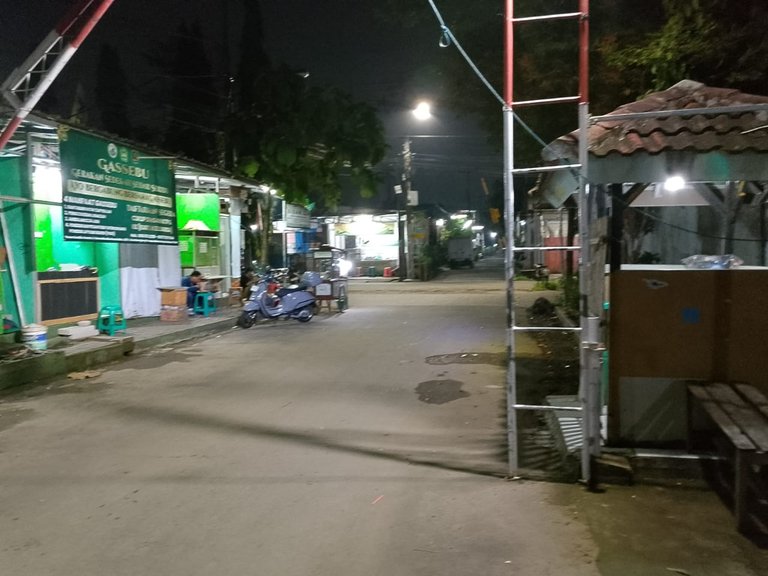
I needed to buy internet data, so I stopped by a small retailer in a residential area. The shop was open until midnight, providing a convenient stop for late-night purchases. It was quiet, and the peaceful atmosphere of the neighborhood added to the calmness of the evening.
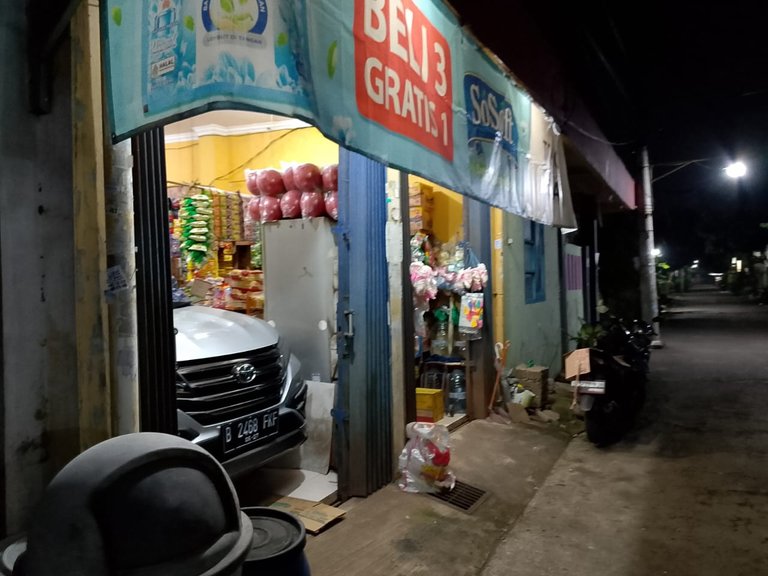
I entered the shop and looked around. It was stocked with a variety of products, from soap to rice, neatly arranged on shelves. The small space was bustling with different items, creating a homely atmosphere, typical of a local retailer in a residential area.

There were no workers in the shop, just the owner, who handled everything himself. It felt quiet and personal, with him managing the store while I browsed through the neatly arranged shelves of products.
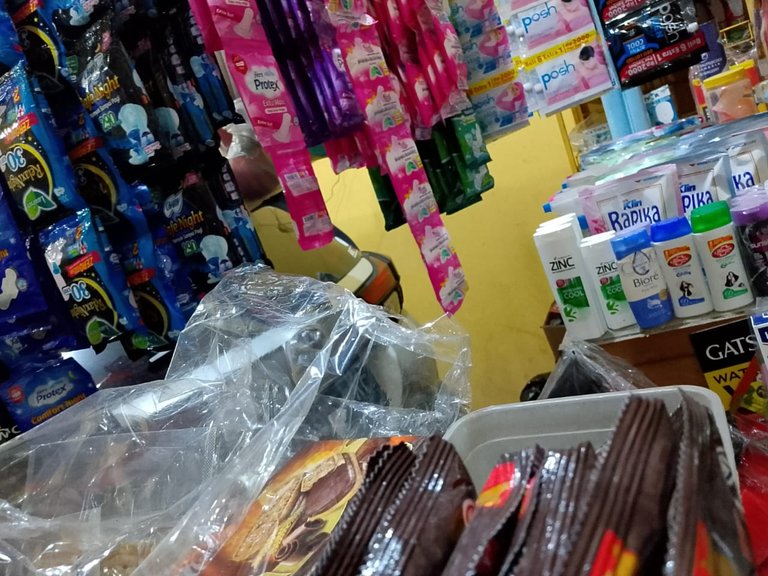
Becoming a retailer is free as long as you have enough capital. You can display hundreds of products and operate without strict requirements or standards,
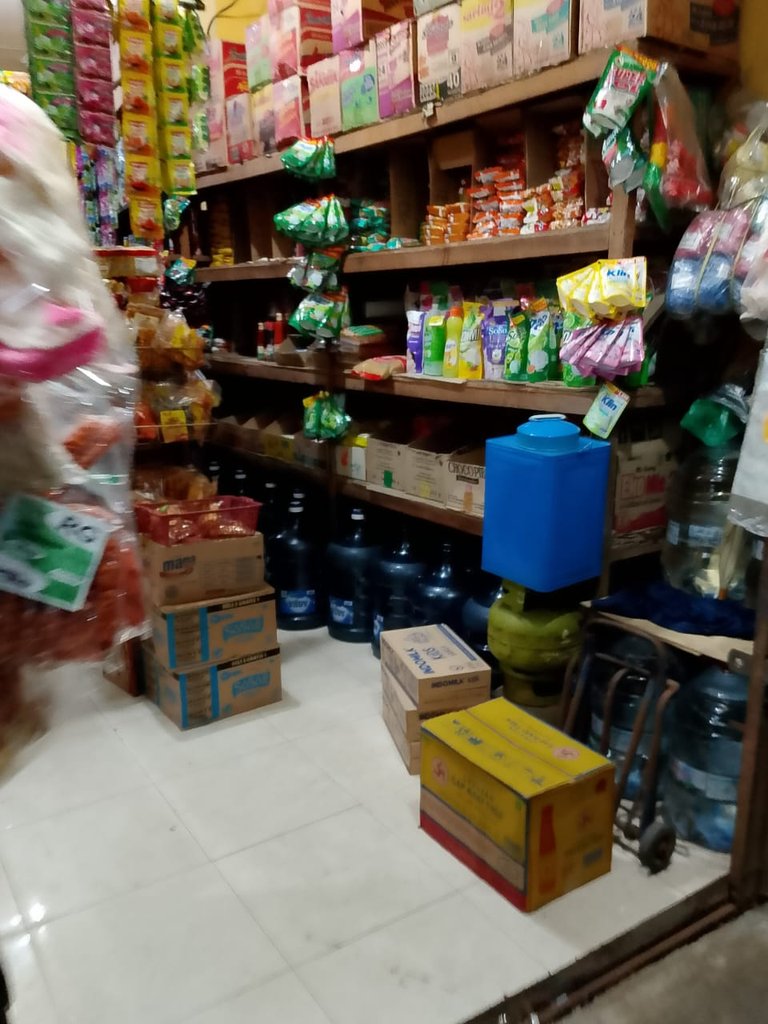
You can shop with little money, as many stores offer affordable products. Kids, in particular, enjoy buying snacks, making it a common and popular choice for small purchases in retail environments.
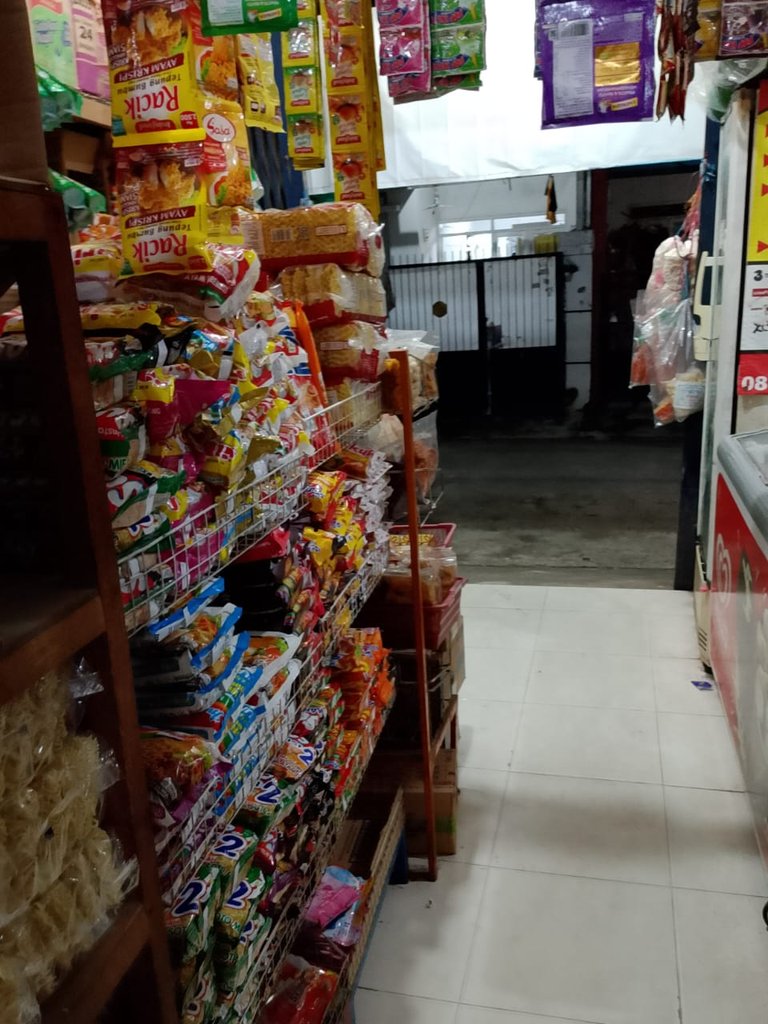
Small retailers are a reflection of the "ekonomi kerakyatan" (people's economy), emphasizing local and community-based economic systems. Even if the government collapses, those involved in retail can often survive due to their ability to adapt, cater to basic needs, and maintain essential services for the community, supporting economic resilience.
How small retailers in your country?

